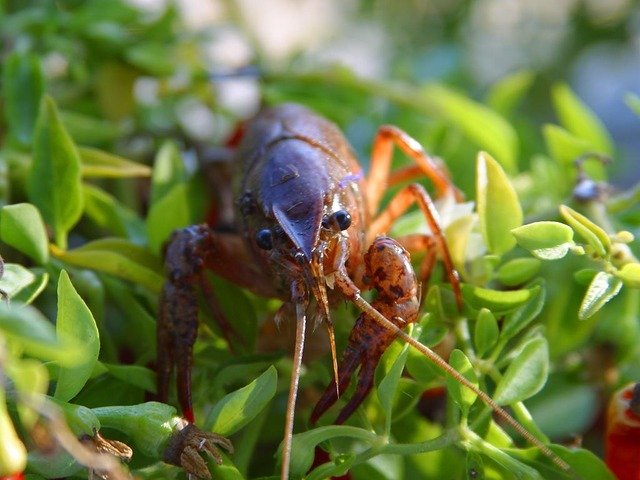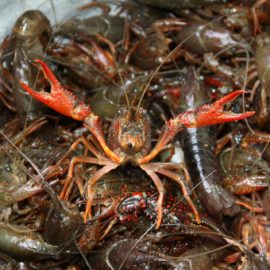
Crawfish on amphetamines? Seems strange but it is in the water they live in.
As crawfish are exposed to trace amounts of antidepressants found in many waterways, they are emboldened and lay aside their natural instincts, a study at the University of Florida found. These behaviors put them in danger and could threaten the ecological equilibrium vital to coastal regions, according to the study, led by soil and water sciences assistant professor Alexander Reisinger. “Antidepressants can help humans emerge from the darkness of depression,” the study said. “Expose crayfish to antidepressants, and they too become more outgoing.”
nola.com
Being bolder means they spend more time out of their shelter gathering food and being exposed to predators. They are needed to clean the floor of the body of water and this reduces their ability to do so.
Although the study focused on crawfish, it raises questions of how the drugs may be affecting largemouth bass and predators that eat crawfish, and in turn how the seafood could be impacting humans. The concentration of the antidepressants tends to stack up as they move up the food chain, according to the study. “The answer is not for people to stop using medications prescribed by their doctor,” Reisinger told USA Today. “One big way consumers can prevent pharmaceuticals from entering our water bodies is to dispose of medications properly.”
We are warned! We can help by properly disposing of the meds. The answer is not for people to stop using medications prescribed by their doctor,” Reisinger told USA Today. “One big way consumers can prevent pharmaceuticals from entering our water bodies is to dispose of medications properly.”

